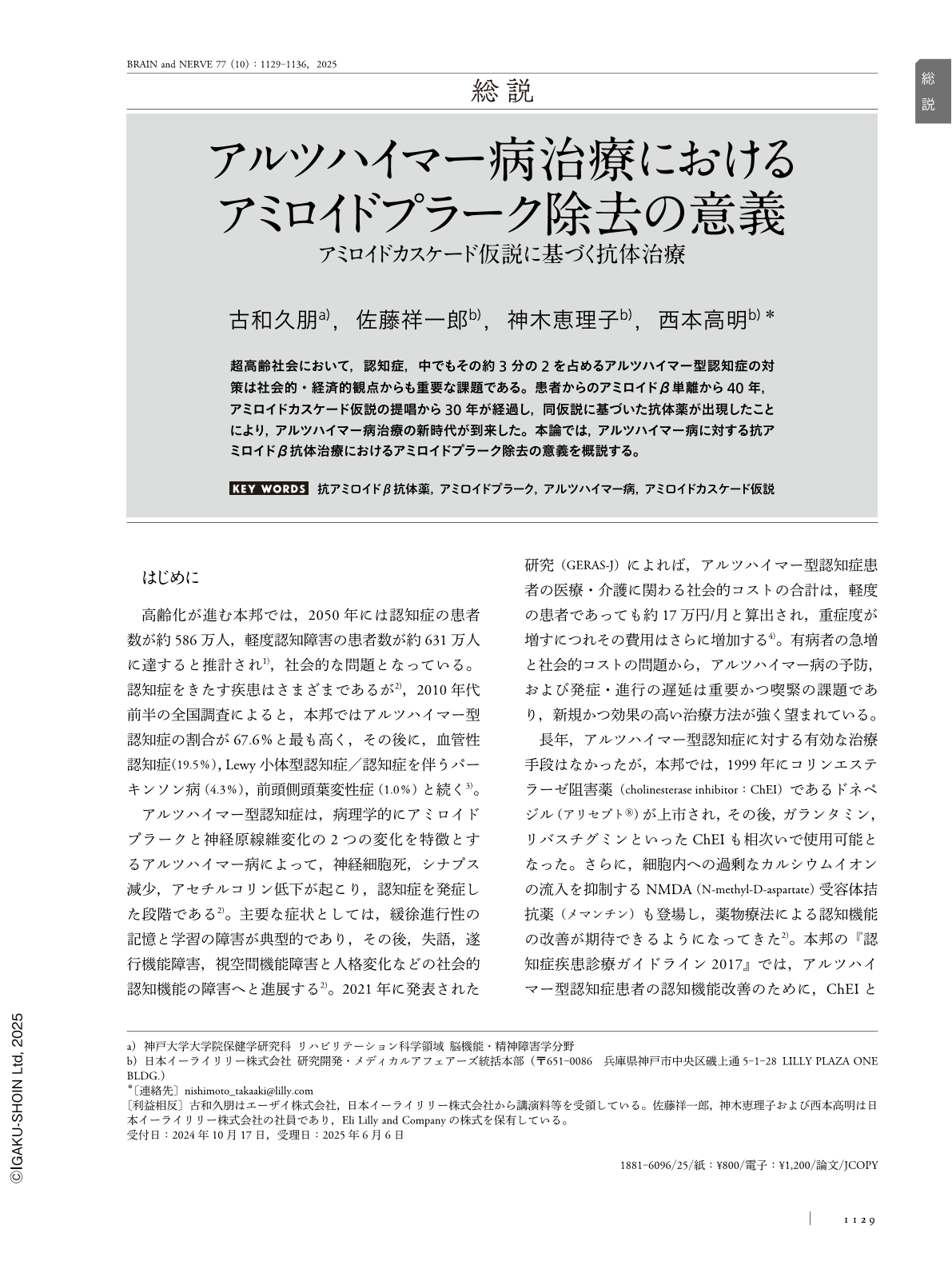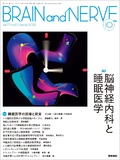Japanese
English
- 有料閲覧
- Abstract 文献概要
- 1ページ目 Look Inside
- 参考文献 Reference
超高齢社会において,認知症,中でもその約3分の2を占めるアルツハイマー型認知症の対策は社会的・経済的観点からも重要な課題である。患者からのアミロイドβ単離から40年,アミロイドカスケード仮説の提唱から30年が経過し,同仮説に基づいた抗体薬が出現したことにより,アルツハイマー病治療の新時代が到来した。本論では,アルツハイマー病に対する抗アミロイドβ抗体治療におけるアミロイドプラーク除去の意義を概説する。
Abstract
In a hyper-aging society, taking measures against dementia, especially against dementia due to Alzheimer's disease, which accounts for about two thirds of dementia cases, is an important task socially and economically. Forty years have passed since amyloid β was isolated from a patient, 30 years have passed since the amyloid cascade hypothesis was proposed and antibody drugs based on this hypothesis have emerged, which has led to the new era of Alzheimer's disease treatment. This article reviews the significance of amyloid plaque removal with amyloid β-targeting antibody treatment for Alzheimer's disease.
(Recieved October 17, 2024; Accepted June 6, 2025; Published October 1, 2025)

Copyright © 2025, Igaku-Shoin Ltd. All rights reserved.


